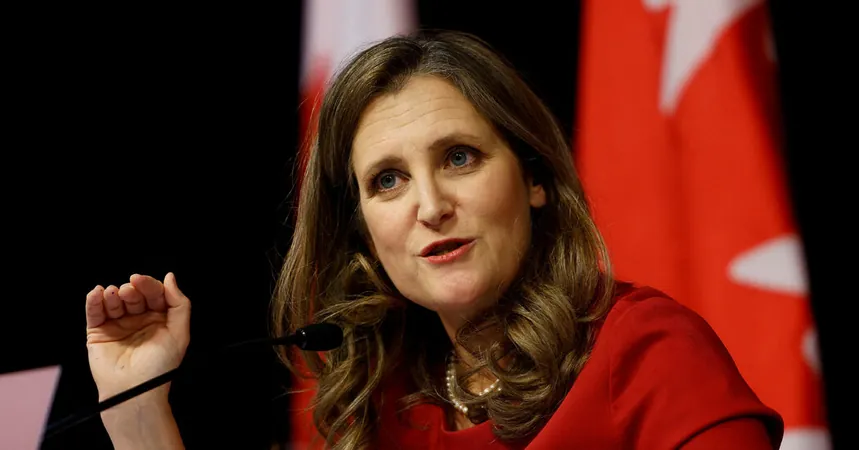
China's Economic Struggles Intensify as Trump Tariff Threat Looms: What You Need to Know for 2025
2024-12-16
Author: Noah
Introduction
China is facing significant economic challenges as mixed signals emerge from the latest industrial output and retail sales data, just as the prospect of renewed trade tariffs from a second Trump administration looms on the horizon.
Industrial Output vs. Retail Sales
In November, China's industrial output grew by 5.4% year-on-year, slightly beating expectations and showing an increase from October's 5.3%. However, the retail sales sector, a crucial indicator of consumer health, showed disappointing results—a meager 3.0% growth, the slowest in three months, falling well short of the anticipated 4.6%.
Concerns Over Domestic Consumption
Economists are raising alarms about the fragility of domestic consumption, which has been sluggish despite previous governmental efforts to stimulate demand. Dan Wang, an independent economist in Shanghai, pointed out that China's policies have historically favored manufacturers over consumers, reflecting a persistent weakness in consumer sentiment.
Impact of Trump Tariffs
Amidst these economic hurdles, the looming threat of tariffs from President-elect Donald Trump, who has pledged to impose tariffs exceeding 60% on Chinese goods, could exacerbate pressure on China's $19 trillion economy. Analysts are concerned that this could derail the ongoing efforts to transition from a fixed-asset investment and export-driven growth model to a more consumption-oriented approach.
Fixed Asset Investment Slowdown
Fixed asset investment growth slowed to 3.3% from January to November compared to the same period last year, also below the expected 3.4% increase. However, some experts suggest that the recent figures might not fully capture consumer demand trends.
Policy Responses
In the realm of policy, China’s central bank officials have hinted at more supportive measures, including the potential for further cuts to reserve requirements for banks. Despite this, previous efforts to ease monetary policy have yet to translate into increased borrowing.
Real Estate Sector's Importance
As November's new home prices showed the slowest rate of decline in 17 months, analysts remain cautious about declaring a recovery in the real estate sector. A recent Reuters poll estimates that China’s growth could hit 4.5% next year, yet new U.S. tariffs could potentially shave as much as 1 percentage point off this figure.
Government's Economic Strategy
In a recent Central Economic Work Conference (CEWC), Chinese leadership committed to amplifying fiscal support, raising the budget deficit, issuing more debt, and prioritizing consumption as part of a broader strategy to stabilize the economy.
Conclusion
As the world watches closely, the actions taken by both Beijing and Washington will have profound implications for China's economic landscape and its relationship with global trade. Keep an eye on these developments—2025 could be a turning point!









 Brasil (PT)
Brasil (PT)
 Canada (EN)
Canada (EN)
 Chile (ES)
Chile (ES)
 España (ES)
España (ES)
 France (FR)
France (FR)
 Hong Kong (EN)
Hong Kong (EN)
 Italia (IT)
Italia (IT)
 日本 (JA)
日本 (JA)
 Magyarország (HU)
Magyarország (HU)
 Norge (NO)
Norge (NO)
 Polska (PL)
Polska (PL)
 Schweiz (DE)
Schweiz (DE)
 Singapore (EN)
Singapore (EN)
 Sverige (SV)
Sverige (SV)
 Suomi (FI)
Suomi (FI)
 Türkiye (TR)
Türkiye (TR)